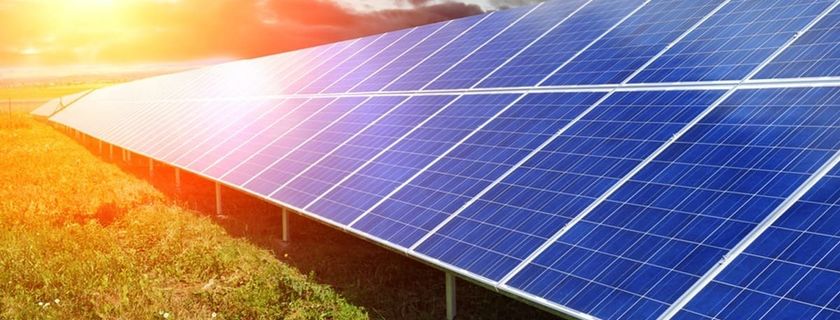
CIRCUSOL: Solar power business models towards a circular economy in Europe (PRESS RELEASE)
CIRCUSOL: Solar power business models towards a circular economy in…

As mentioned in the earlier article End-of-life management of PV systems, there is no real legal definition of what ‘solar waste’ entails. This lack of a specific definition for discarded solar panels and the adoption of the general waste definition will be detrimental to the Solar as a Service (SaaS) business model and circular economy in general.
“Waste” means any substance or object which the holder discards or intends or is required to discard – Art. 3, par. 1 Waste Framework Directive
Based on this definition of waste, if the holder discards, wants to or must discard his solar panels, they are automatically qualified as waste. The European Court of Justice has also stressed that the concept of waste always applies to substances and objects which the holder discards, even if they still have a positive economic value or are capable of being repaired, reused or recycled (ECJ 28 March 1990, nos. C-206/88 - C-207/88)
This classification of an object as 'waste' implies not only (a) an obligation to manage the waste, with specific responsibilities, but also (b) an obligation to hold the necessary administrative permits for the collection, storage, treatment, transport and export of the waste. The concept of waste is thus an obstacle to the transition to the circular economy, in the sense that it discourages companies from applying circular principles.
As already mentioned, the holder is at the core of the concept of waste. After all, it is the holder who determines whether a substance or object will be labelled as 'waste'. But according to the Waste Framework Directive, the holder of waste is the one who has the substances or objects merely in his possession. Therefore, the waste holder does not even have to be the owner of the substances or objects. This means that if the SaaS agreement ends and the holder – in this case the user – discards the PV installation, even if the provider picks it up and reuses/recycles it, the PV installation complies with the concept of waste. This is detrimental to the SaaS BM.
In order to move away from the subjective interpretation of the concept of waste and to promote alternative business models such as the PSS business model, it would be interesting to bring the definition of waste in line with the concept of waste in the Basel Convention. The Basel Convention defines waste as "any substance or object which is disposed of or is intended to be disposed of or is required to be disposed of in accordance with the provisions of national legislation". By doing so, the Convention avoids the term ‘holder’. The removal of the word 'holder' would make it clear that there would be no waste if the holder – and not the owner – were no longer using the substances or objects, but rather if they were discarded by the owner.
But even if the definition of solar waste does not depend solely on the will of the holder, it is still important that certain discarded PV components are not regarded as waste anymore; that they receive an end-of-waste status.
The Waste Framework Directive allows any waste, even hazardous waste, to be covered by this end-of-waste status. This means that the waste status that applies to an object or substance is therefore only temporary. The condition, however, is that the substance or object has undergone a recovery treatment* and that it meets specific criteria laid down by the European or national regulator. For those materials for which no specific criteria have been laid down by the regulator – which is the case for solar waste, the end-of-waste status can be determined by the market players themselves, on the basis of the generic waste definition and a check against the criteria set out in national waste legislation.
*Art. 3, 15° Waste Framework Directive: Recovery ": means any operation the principal result of which is waste serving a useful purpose by replacing other materials which would otherwise have been used to fulfil a particular function, or waste being prepared to fulfil that function, in the plant or in the wider economy. Recovery operations are divided into three sub-categories: preparation for re-use, recycling and other recovery operations.
However, in practice, it is by no means easy for the companies applying circular principles to determine whether specific criteria have been established, where they can be found and whether or not they have been met.
The Flemish legislator has therefore tried (to some extent) to meet this uncertainty by introducing a system of so-called raw material declarations. The declaration is issued, upon request by the waste holder, by the Public Waste Agency of Flanders (OVAM) and guarantees that the conditions and criteria of the Materials Decree have been met and that the material or component should not or no longer be considered as waste. Hence the material loses its waste status and enters the end-of-waste phase.
Such raw material declarations are very useful in the circular economy as they provide companies with a certain assurance that they do not process waste. Despite this, practice shows that it is often impossible for OVAM to provide a raw material declaration since the recycler of the material is not always aware of the exact application or destination in which the secondary raw material will be used. However, this destination is essential to determine the criteria on which the end-of-waste status is granted. In addition, the Flemish raw materials declaration is not conclusive, especially in the case where there is regional or cross-border trade in waste or recycled materials. This is because the end-of-waste phase is labelled differently according to the region or the country in which it is located. What is no longer regarded as waste in Flanders may still be the case in other countries/regions.
In order to obtain more legal certainty regarding this end-of-waste status of certain substances and objects, it is therefore recommended that Europe and the Member States lay down more criteria for different waste streams, such as, for example, the stream of solar waste. In addition, more efforts should be made to increase cooperation between the various stakeholders in the chain. For example, it will be necessary for the producer who wants to use the secondary raw materials to have an in-depth conversation with the recycler about the characteristics of the recycled materials and whether these meet the application envisaged by the producer so that the material in question can be given the end-of-waste status. Finally, the harmonization of the interpretation and maintenance of the end-of-waste phase should also be pursued at a higher policy level. A European raw materials declaration or a mutual recognition system whereby the Member States recognise each other's interpretation and evaluation of the waste statute would be a big step forward.
ABOUT THE AUTHOR: Emilie Verbeure obtained her law degree at the KU Leuven with the specialization in International & European law. She then proceeded with the master’s studies in Environmental Sciences at the University of Antwerp where she conducted research on the legal considerations, possibilities and barriers for PSS in the photovoltaic sector made in the context of the European project CIRCUSOL, in collaboration with VITO. She currently works as a lawyer at Flemish Energy Agency.
DE SADELEER, N. and BONICHOT, J.-C., Droit des déchets de l’UE, Brussel, Bruylant, 2016, 714 p.
RUBENS, W. and VANHEUSDEN, B., ‘De afvalstoffenreglementering als knelpunt voor de circulaire economie : belemmeringen en mogelijke oplossingen’, MER 2019, 31–43.
TIEMAN, J., ‘Afval of grondstof in een circulaire economie - op zoek naar meer rechtszekerheid’ in BACKES, C., TIEMAN, J. and TEESING, N. (eds.), Met recht naar een circulaire economie, Den Haag, Boom juridisch, 2017, 17–64.

CIRCUSOL: Solar power business models towards a circular economy in…